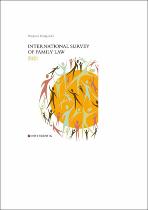| dc.contributor.author | Mujuzi, Jamil Ddamulira | |
| dc.date.accessioned | 2022-04-28T09:44:40Z | |
| dc.date.available | 2022-04-28T09:44:40Z | |
| dc.date.issued | 2021 | |
| dc.identifier.citation | Mujuzi, J. (2021). Kenya Kenyan Kadhis’ courts and their application of the Islamic Law of divorce and distribution of property at the dissolution of marriage. In M. Brinig (Ed.), International survey of family law 2021 (pp. 315-338). Intersentia. doi:10.1017/9781839702020.017 | en_US |
| dc.identifier.uri | https://doi.org/10.1017/9781839702020.017 | |
| dc.identifier.uri | http://hdl.handle.net/10566/7333 | |
| dc.description.abstract | Kenya does not have a State religion. Muslims are estimated to constitute than 10% of the Kenyan population. The ‘Kenyan Islamic practice … is predominantly Sunni with a Shafi intellectual tradition.’ However, there are many other Muslim sects in Kenya. Although Kenya follows a common law legal system, the Constitution and other laws such as the Marriage Act and the Matrimonial Property Act provide that Muslim marriages, divorces and matters relating to inheritance shall be governed by Islamic law. In order to ensure that Islamic law is given effect, the Kenyan Parliament passed the Kadhis’ Courts Act, which establishes Kadhis’ Courts in different parts of Kenya. Section 5 of the Kadhis’ Courts Act, based on Article 170(5) of the Constitution, provides for the jurisdiction of the Kadhis’ Courts: | en_US |
| dc.language.iso | en | en_US |
| dc.publisher | Cambridge University Press | en_US |
| dc.subject | Islamic law | en_US |
| dc.subject | Kenya | en_US |
| dc.subject | Divorce | en_US |
| dc.subject | Marriage | en_US |
| dc.subject | Muslims | en_US |
| dc.title | Kenya Kenyan Kadhis’ courts and their application of the Islamic law of divorce and distribution of property at the dissolution of marriage | en_US |
| dc.type | Article | en_US |

